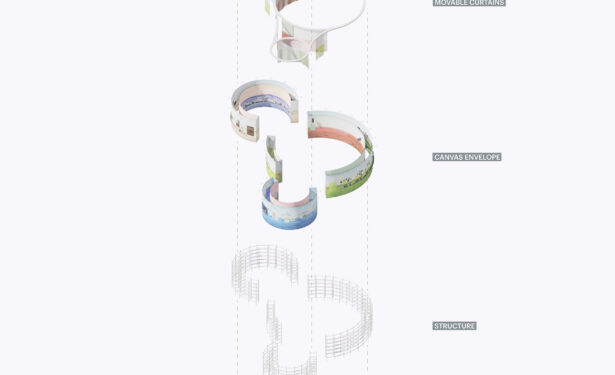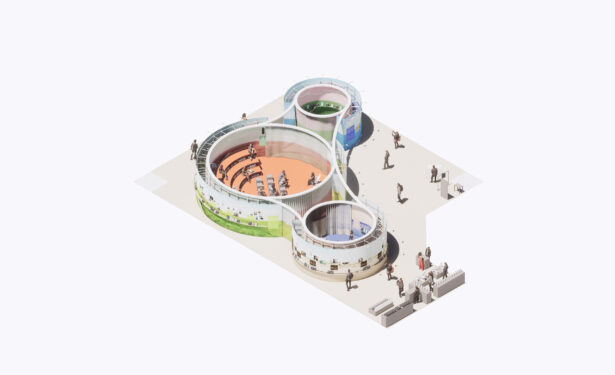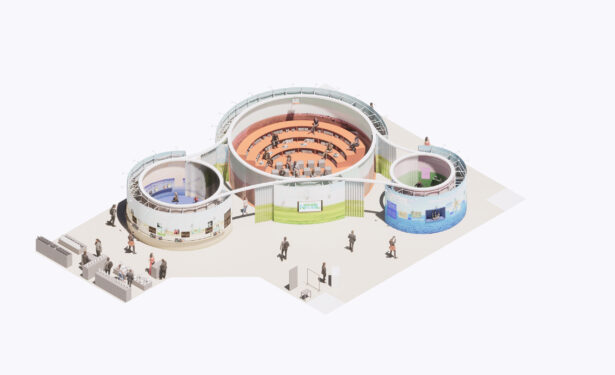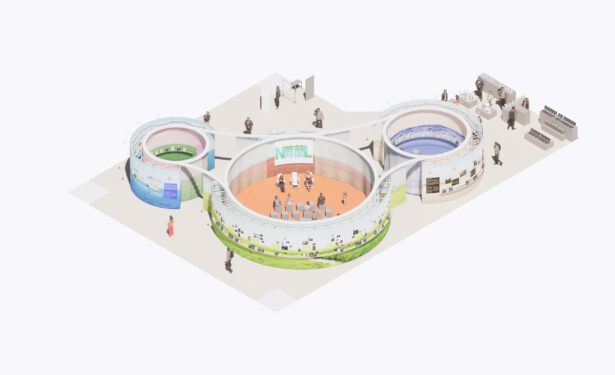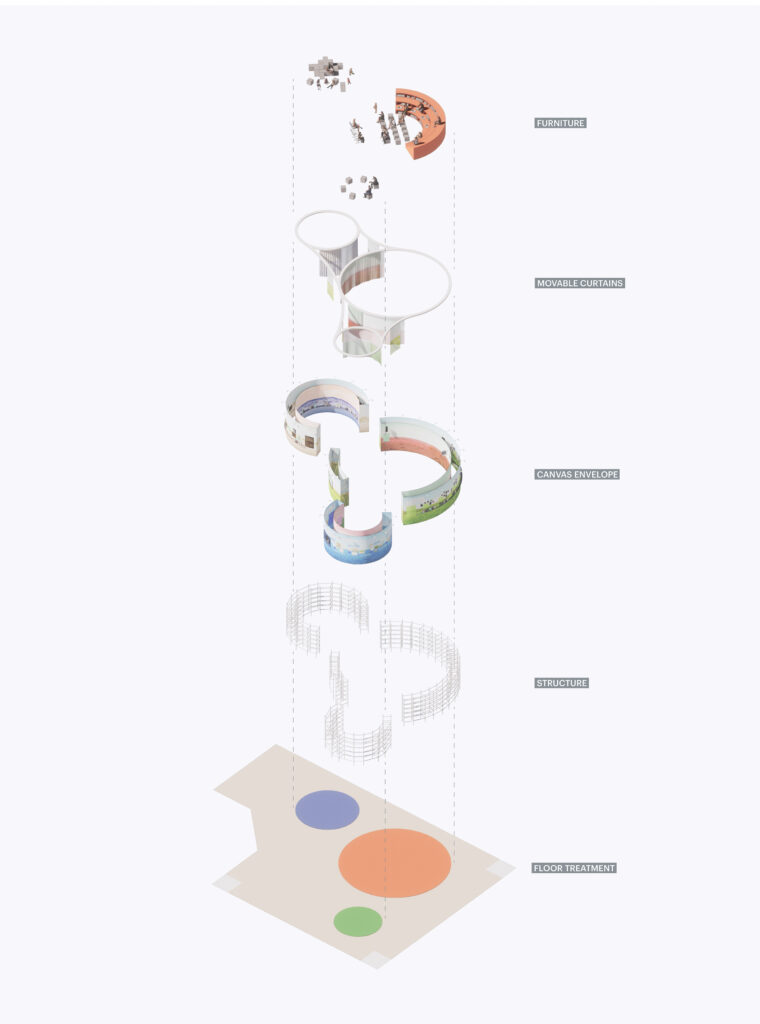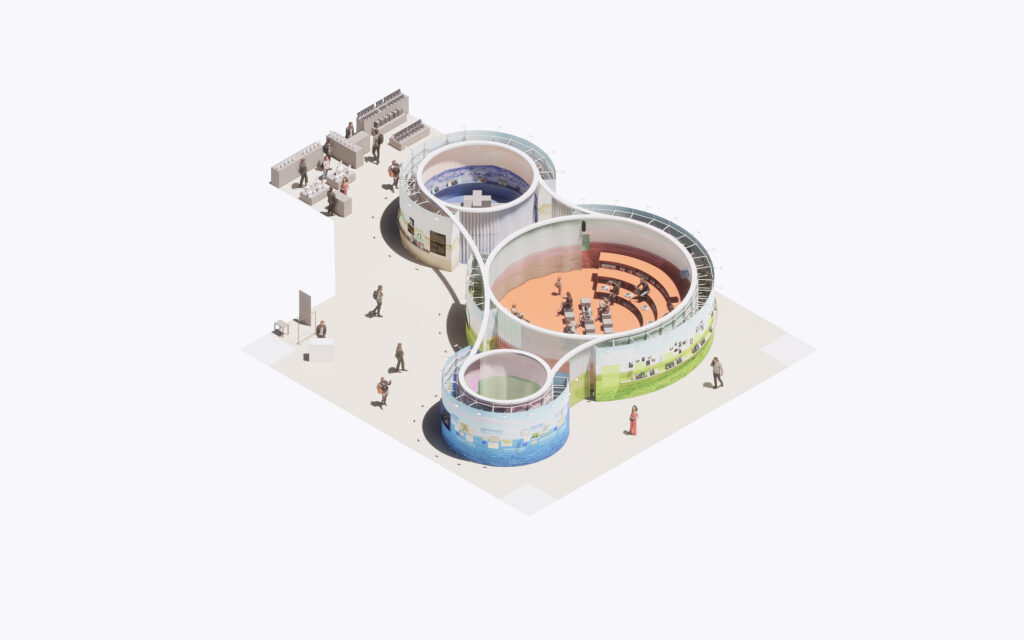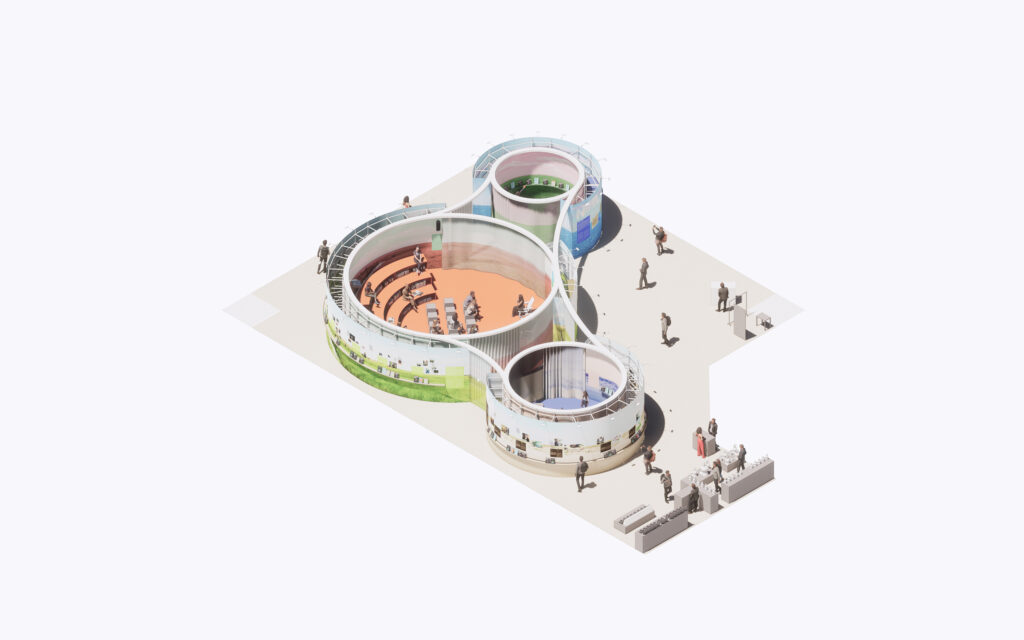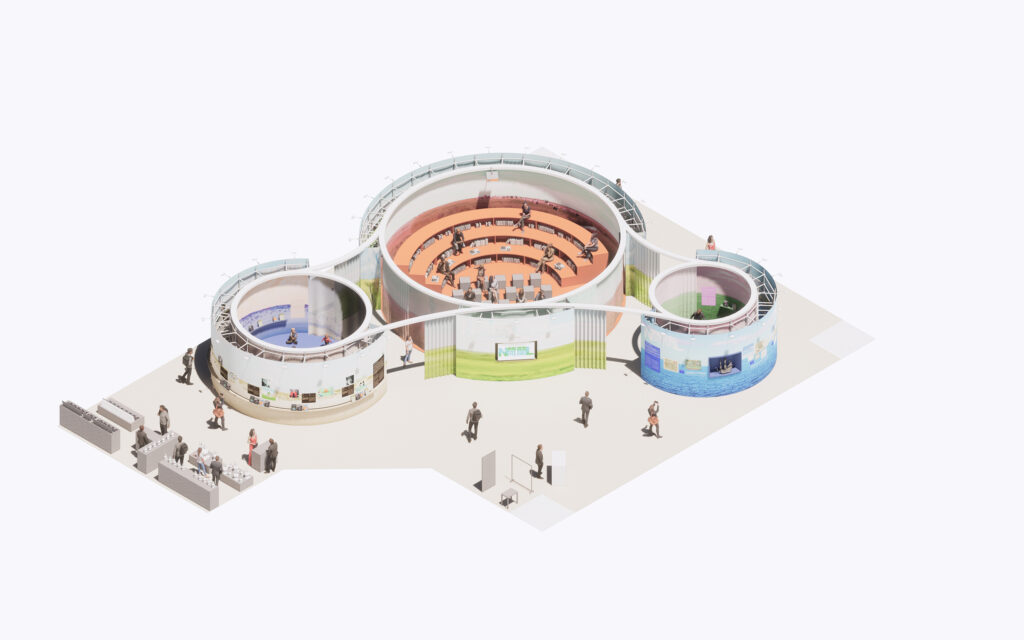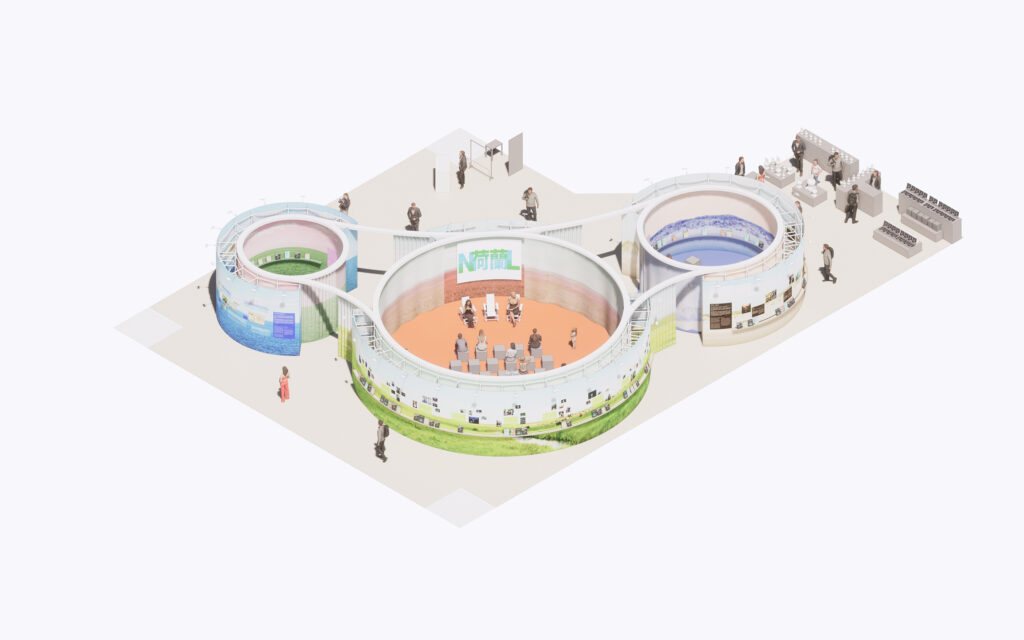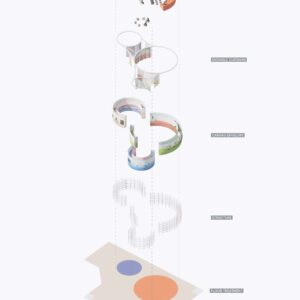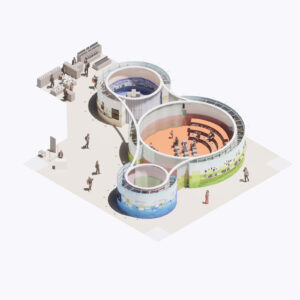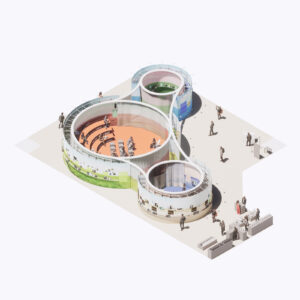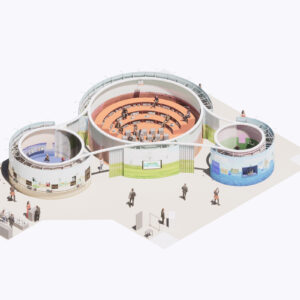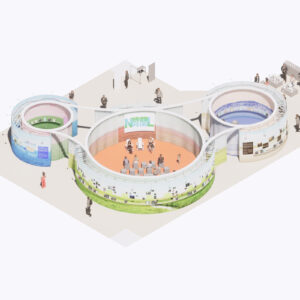- 27 February 2024
- 324 defa okundu.
Taipei International Book Exhibition: Netherlands Pavilion
Marking 400 years since the first encounter between the Dutch and the native people of the island of Taiwan, the Taipei International Book Exhibition (TIBE) declared the Netherlands as the “Guest of Honour” for the 2024 edition of Asia’s largest book fair. MVRDV was selected to both design and curate the Netherlands pavilion.
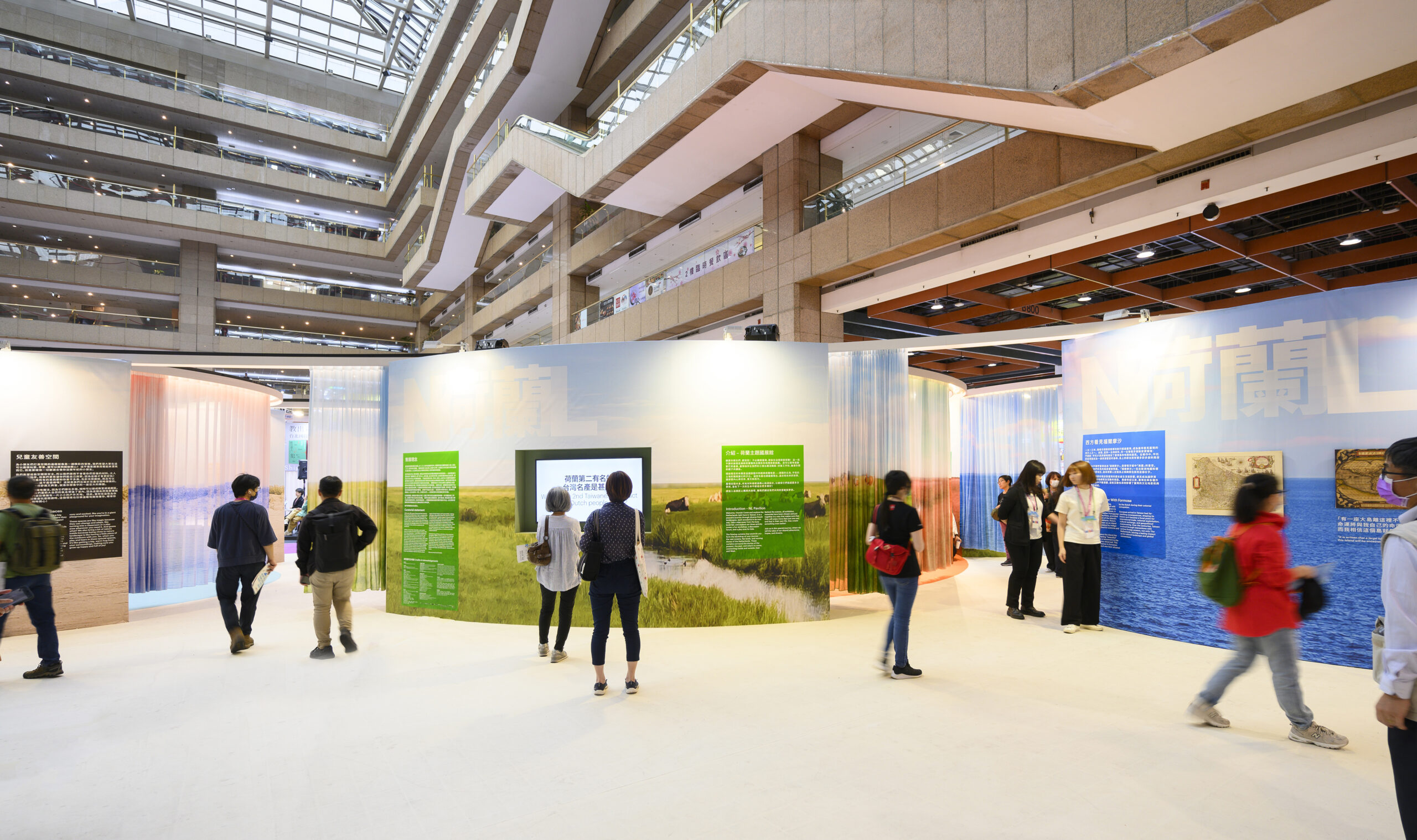
MVRDV was selected to both design and curate the Netherlands pavilion.
The design is composed of three adjoining circles wrapped in images of Dutch landscapes.
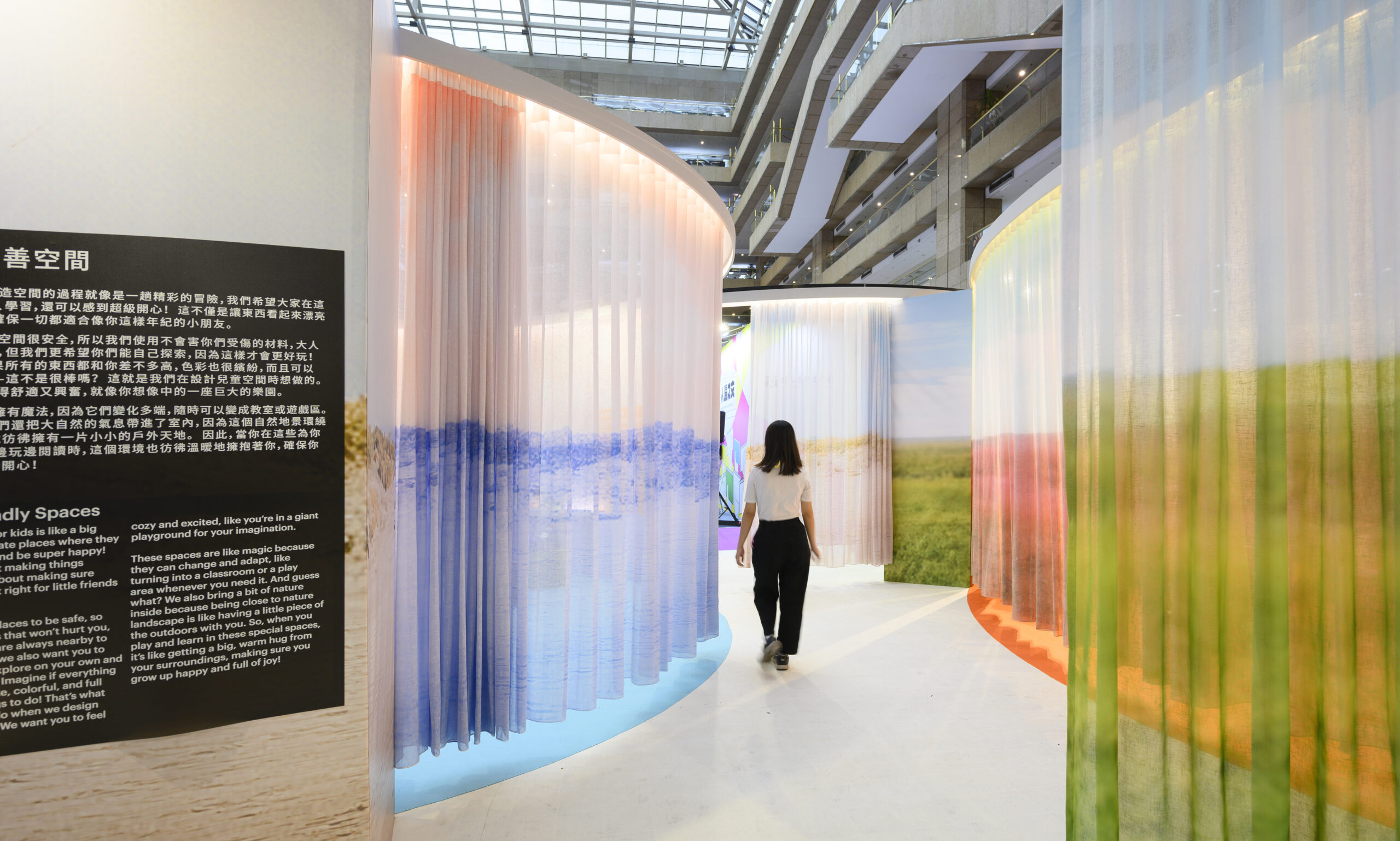
This creates three spaces to represent past, present, and future, allowing the pavilion to reflect on the 400-year relationship, to present modern-day Dutch design and sustainability expertise, to elaborate on ideals of diversity and inclusivity – and of course, to showcase and explore a wide range of Dutch literature.
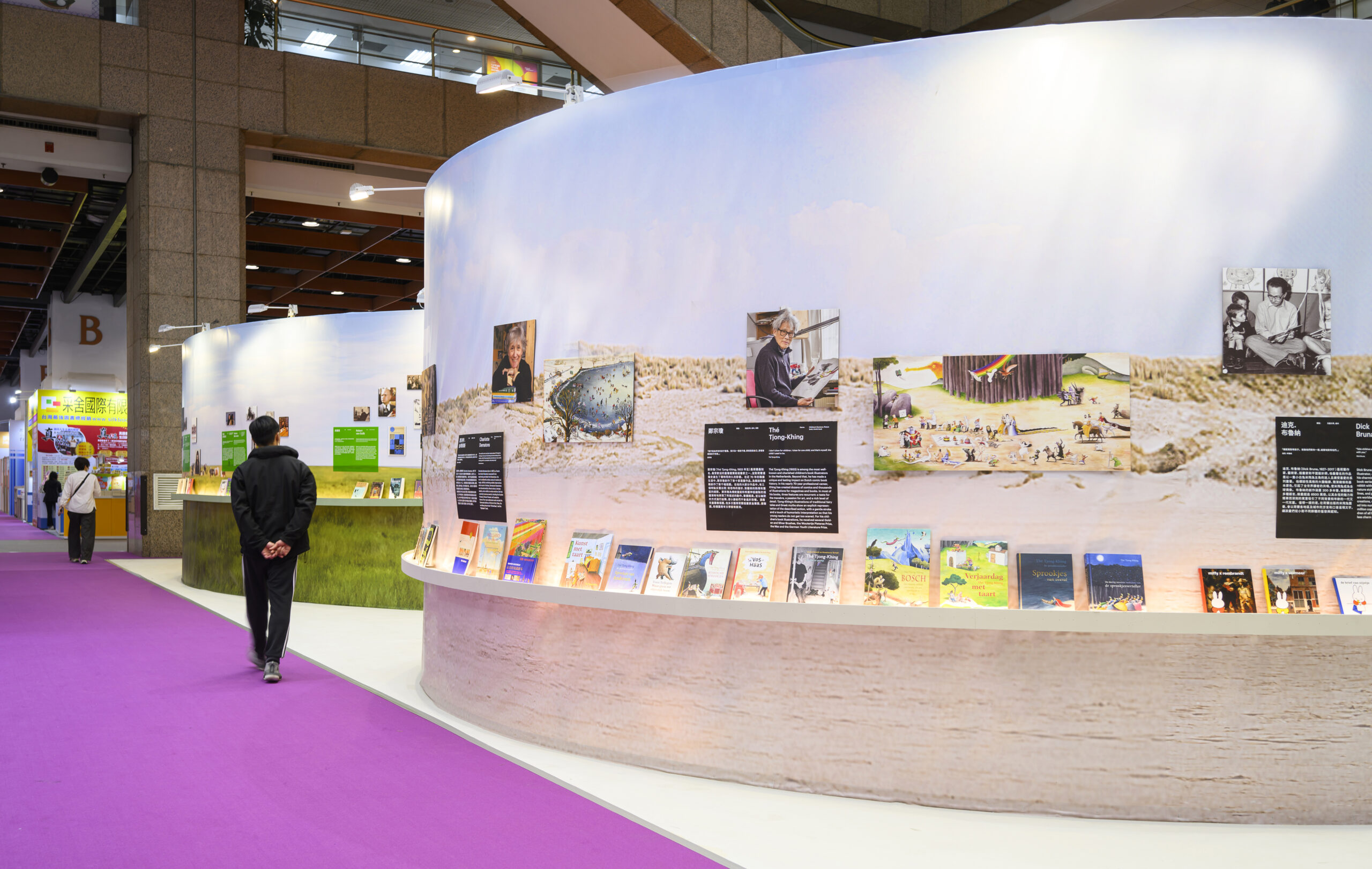
As much as possible, the pavilion design uses recycled, recyclable, and reusable materials, ensuring a sustainable contribution to the exhibition that produces minimal waste.
The underlying structure is made with scaffolding arranged into three linked circles.
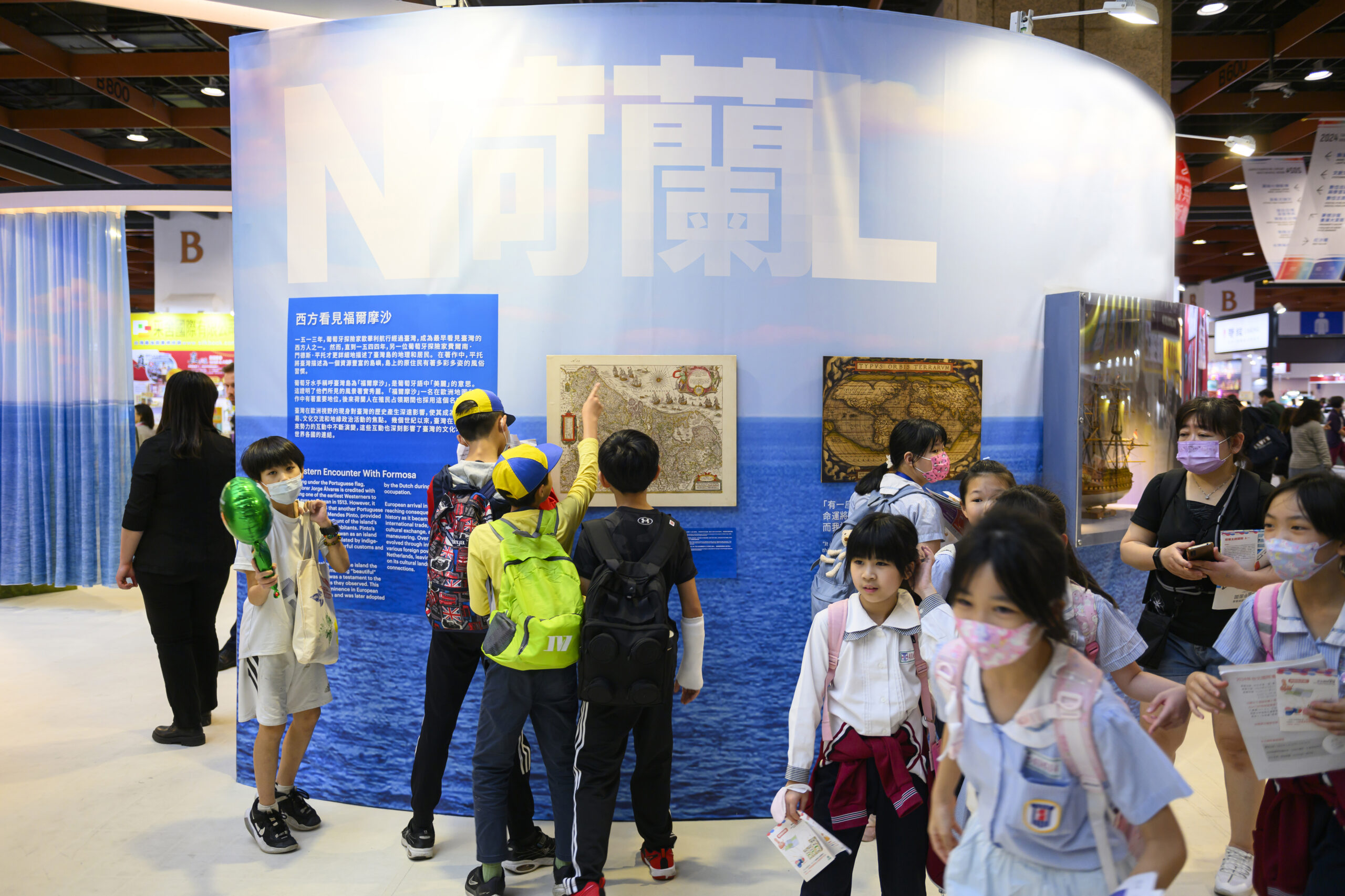
Following the motto “reading expands horizons”, these structures are wrapped in printed canvas that shows the expansive horizons of three archetypical Dutch landscapes: the sea, the polder, and the dunes.
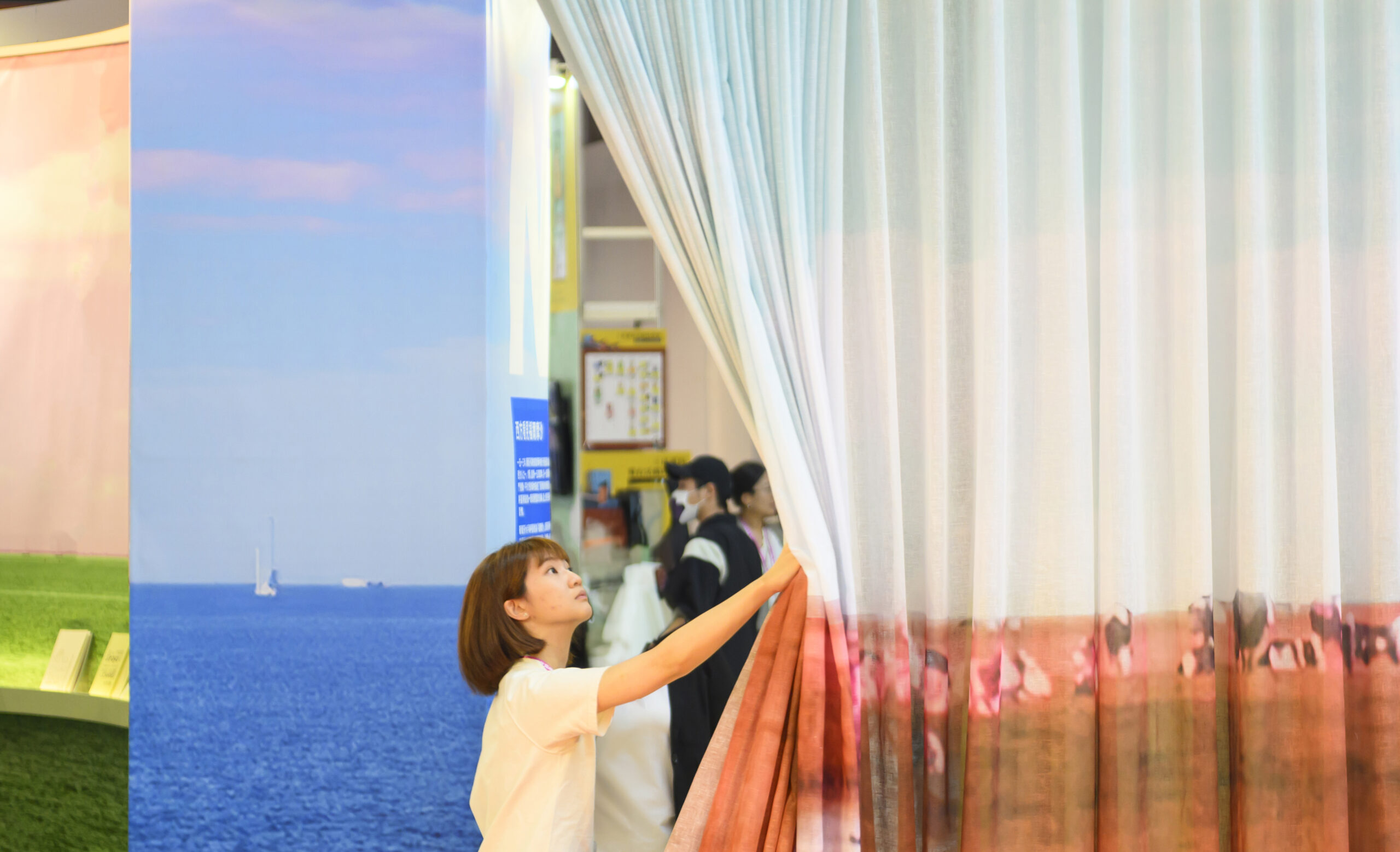
On the interiors of these circles, colour-altered versions of the same three images, inspired by the bold use of colour in Dutch art and design, help to set a variety of atmospheres inside the pavilion.
After the exhibition, this canvas will be turned into book bags and pouches, ensuring an afterlife for the materials used in the pavilion.
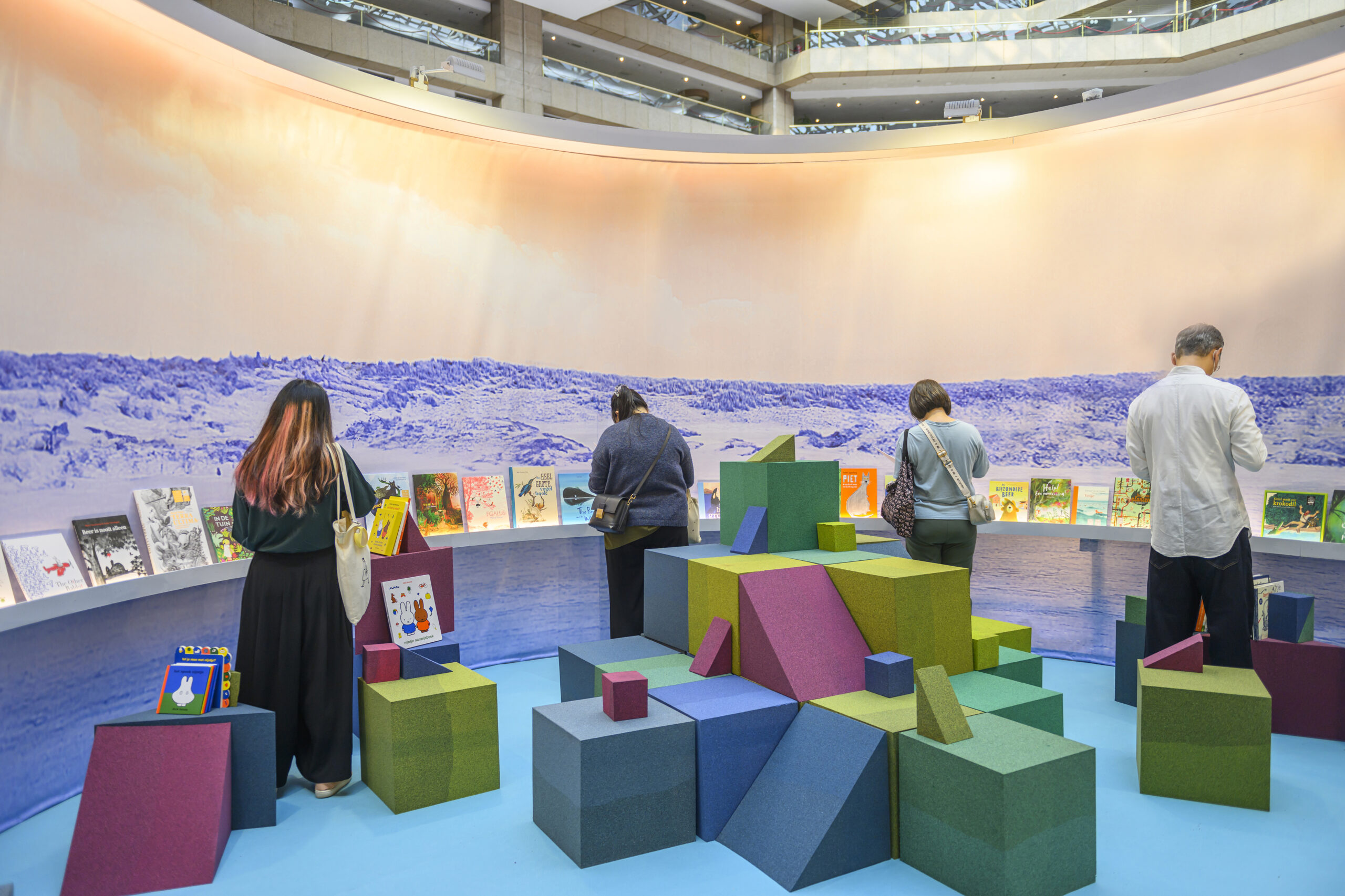
At the centre of the arrangement, the largest circle is represented by the polder landscape.
This circle signifies the present, and is the hub for presenting contemporary Dutch literature, while presenting information about Dutch design and sustainability on its walls.
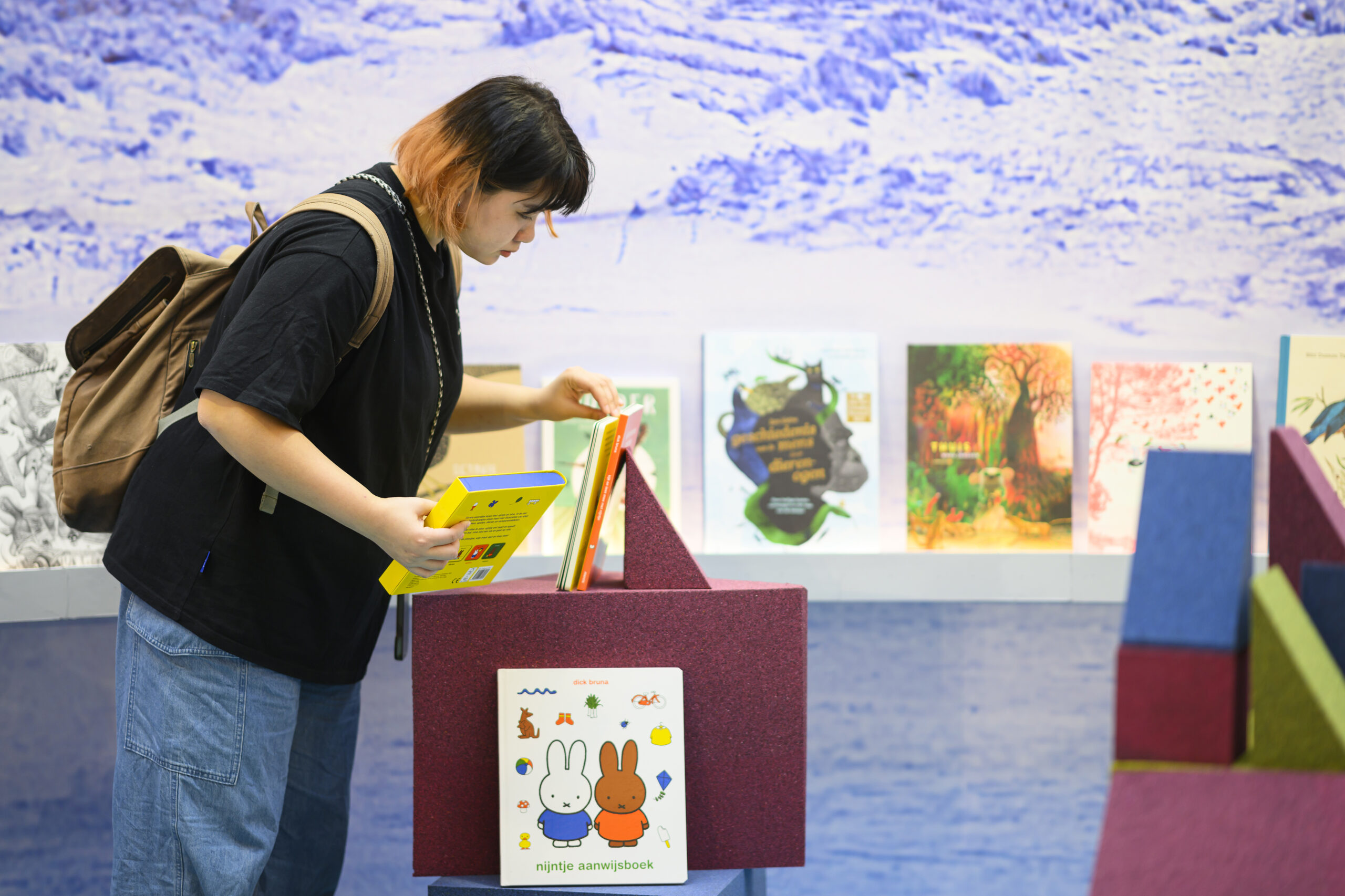
An amphitheatre-like bookshelf and seating platform provides a space for presentations, workshops, and talks throughout the six-day expo.
On a smaller circle, the sea represents the past, as a symbol of the age of exploration and colonisation that originally brought the Dutch into contact with what was then known as Formosa.
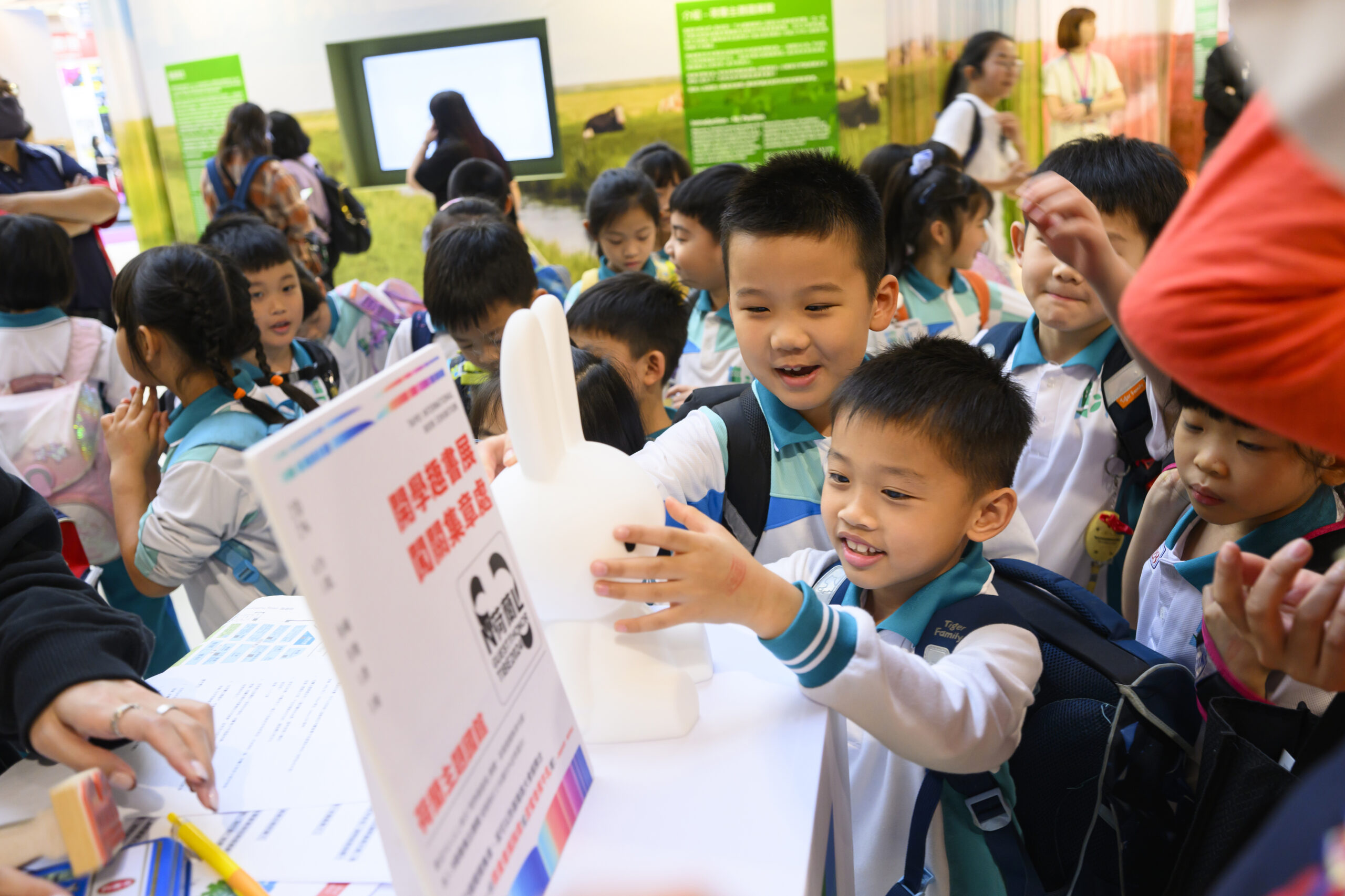
Here, an exhibition of artifacts, documents, and models critically examines the early stages of that relationship.
Finally, the circle representing the future, featuring the Dutch dunes, provides a space for children’s literature and for reflecting on important values of tolerance, free speech, diversity, and inclusivity.
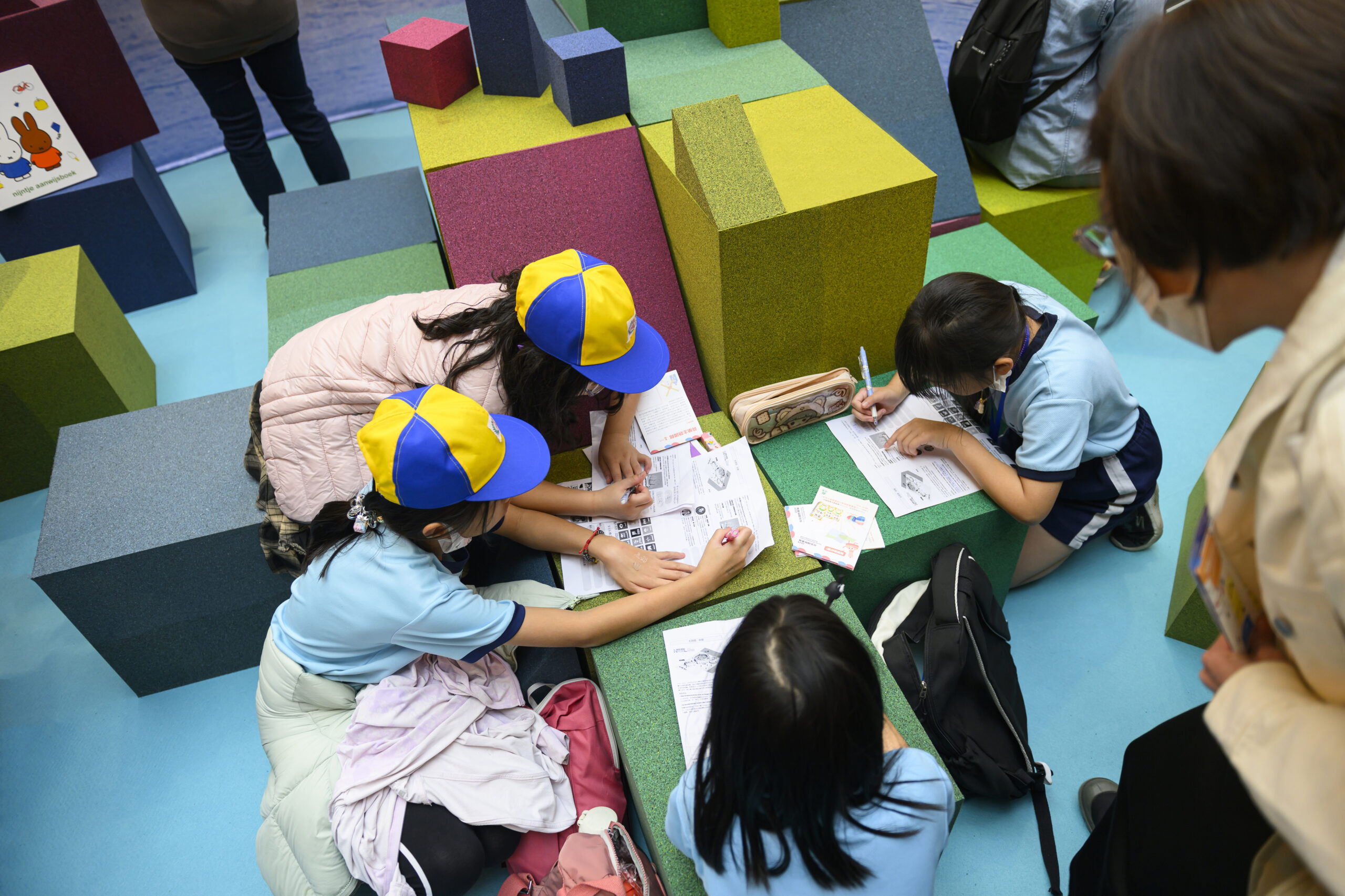
Where the circles connect, the canvas gives way to curtains of the same design, which can be opened or closed to provide entrances to the pavilion.
Similarly, curtains in between each of the circles can be closed to separate each one into its own space, or opened to join the entire pavilion into one large, continuous space.
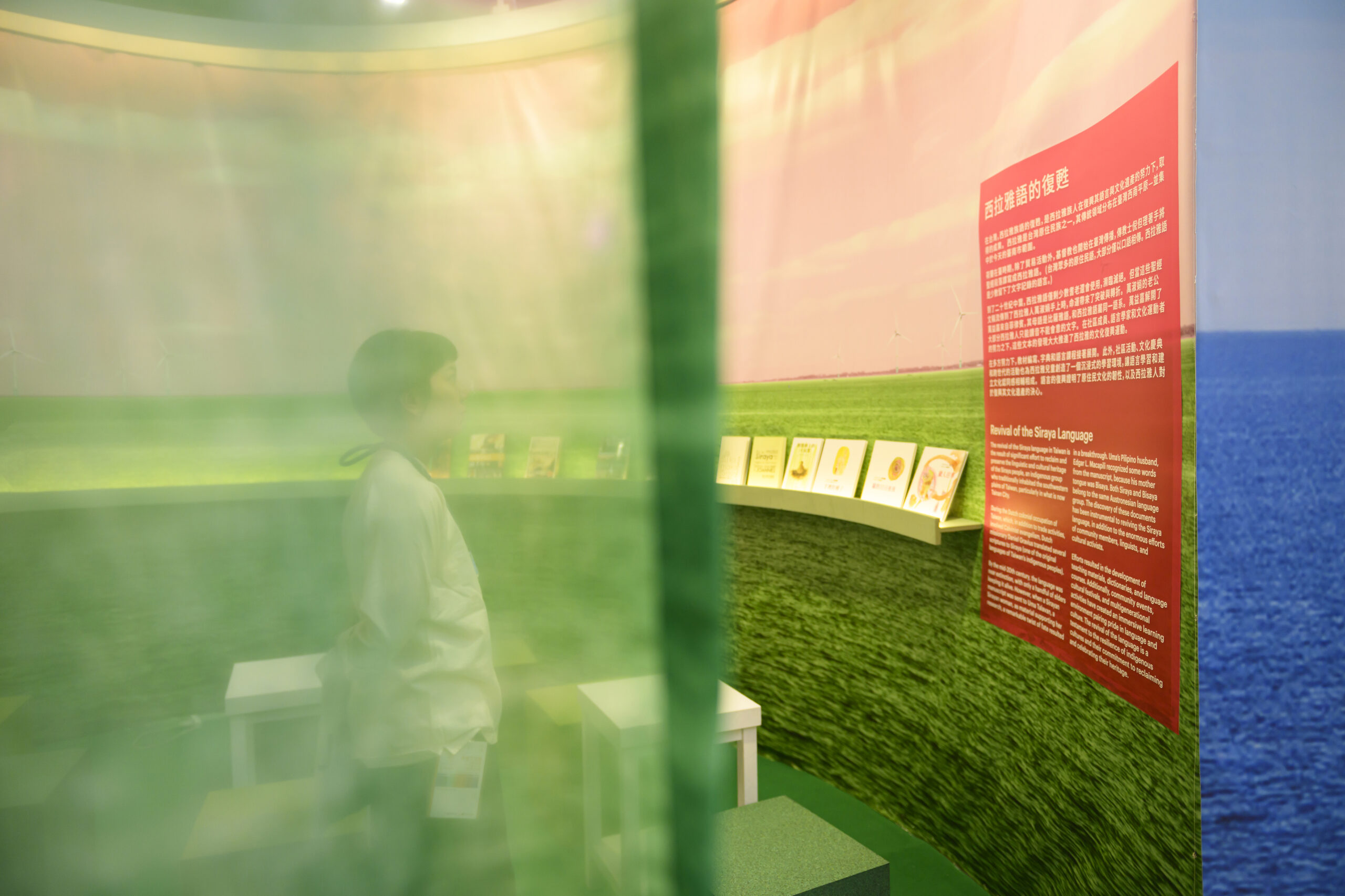
“It’s truly an honour to be invited to design and curate this pavilion for such a significant anniversary”, says MVRDV founding partner Jacob van Rijs.
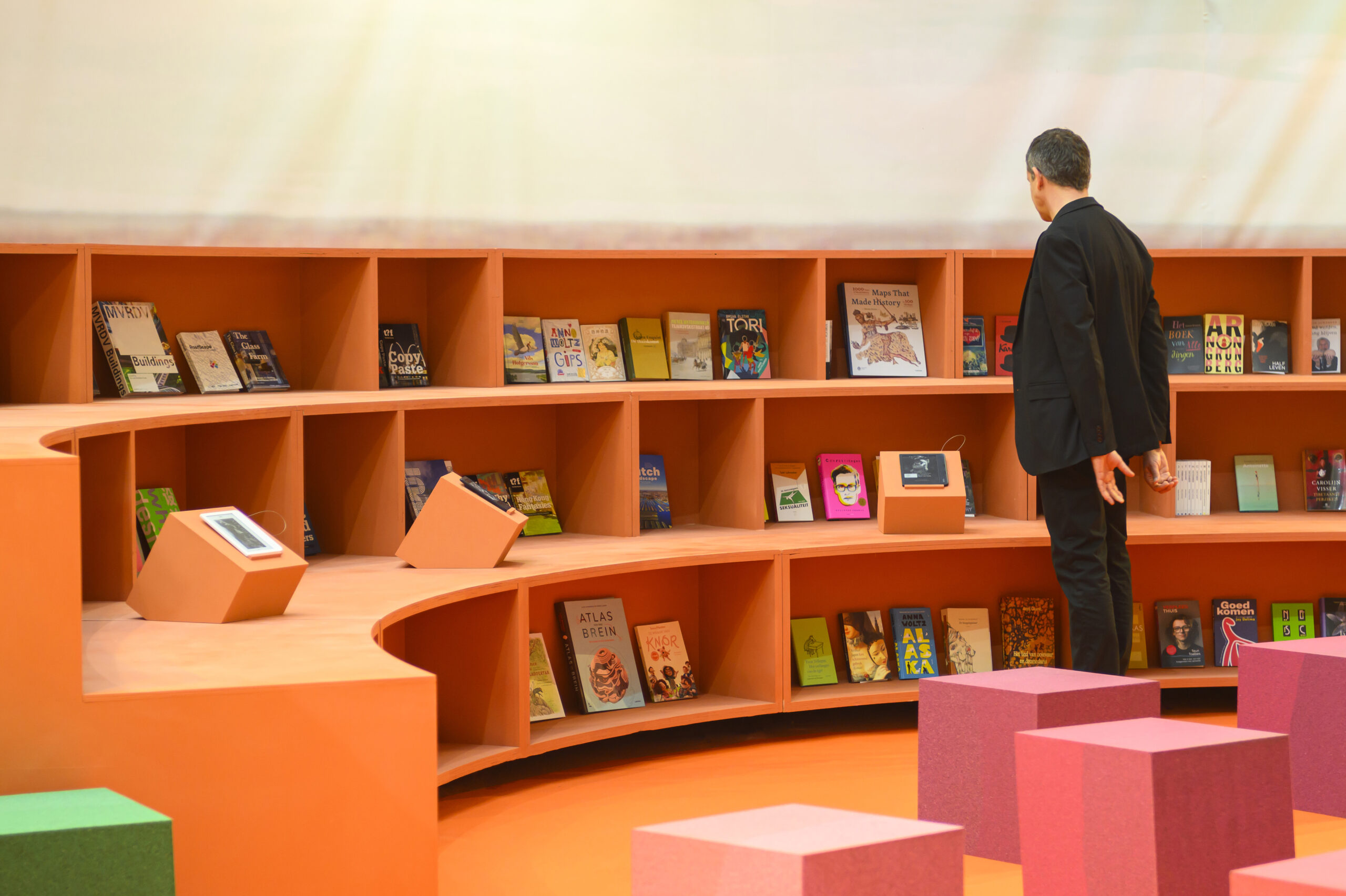
“No relationship is ever simple, and a 400-year relationship has more complexities than most. Similarly, representing an entire country to the rest of the world requires some nuance. In our search for a space that could encompass everything from the history of Dutch colonialism to the cuteness of Miffy, we settled on a pavilion that could adapt over time, separating various sections or combining them all together as needed.”
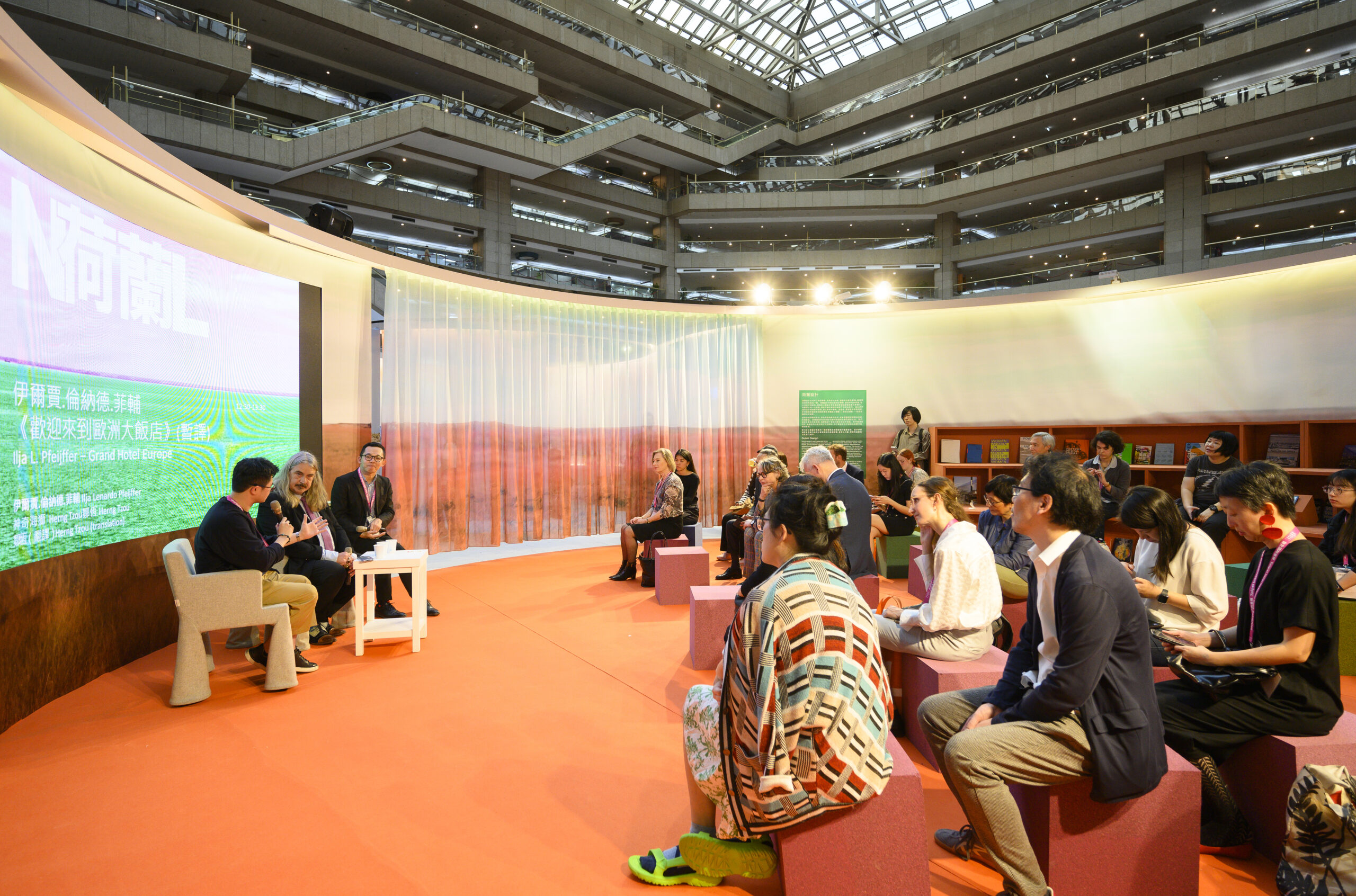
Alongside the main pavilion are shopping areas where visitors can purchase highlighted books, as well as items related to beloved Dutch cartoon characters Miffy (or “Nijntje” to the Dutch) and Dikkie Dik.
Here, visitors will also be able to pre-order the book bags that will be made from the pavilion’s canvas walls.
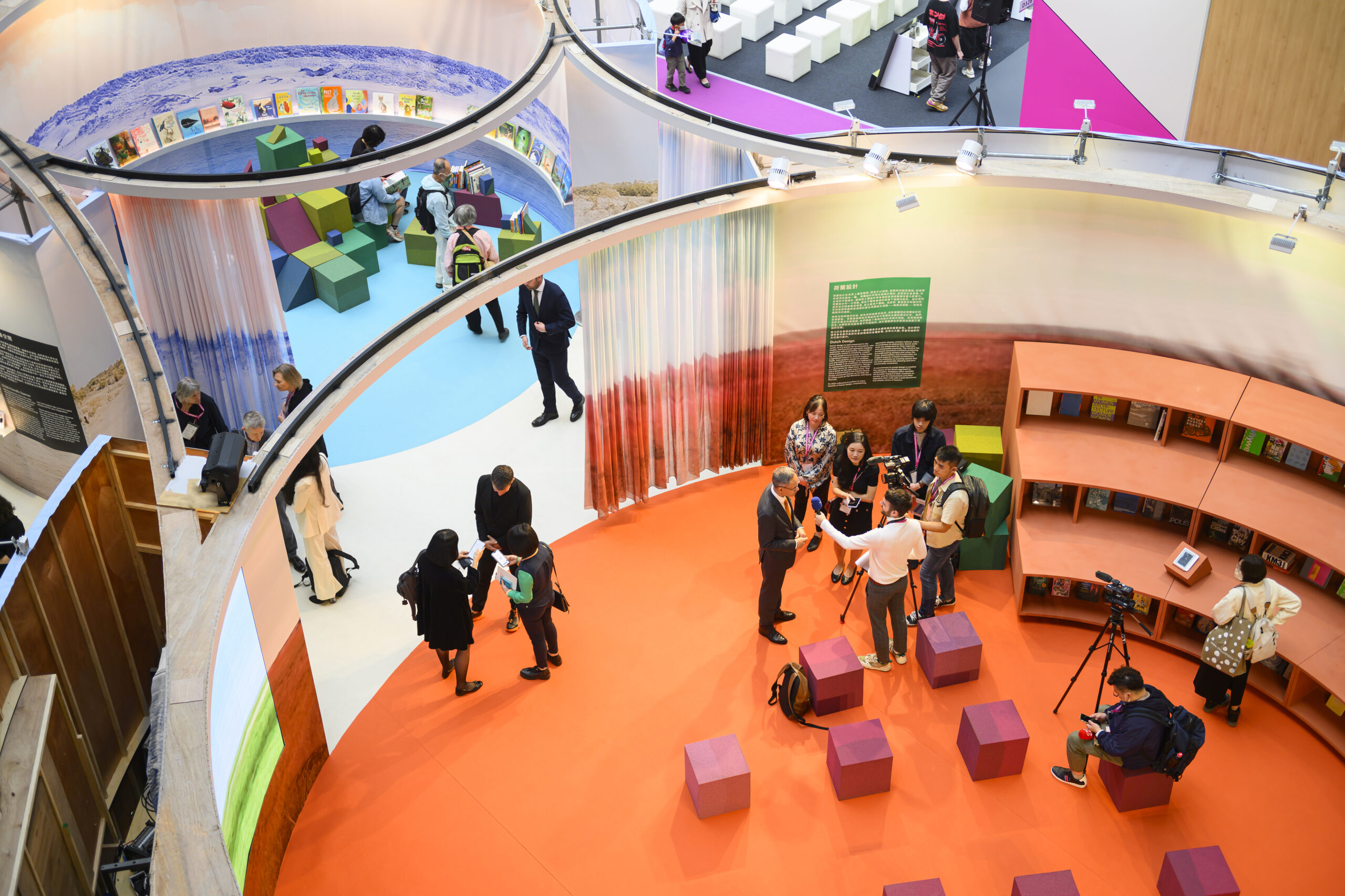
In addition to literature, the pavilion acts as a platform for the best that Dutch design has to offer, with the logo for the Netherlands’ Guest of Honour position designed by Amsterdam-based graphic designers Thonik.
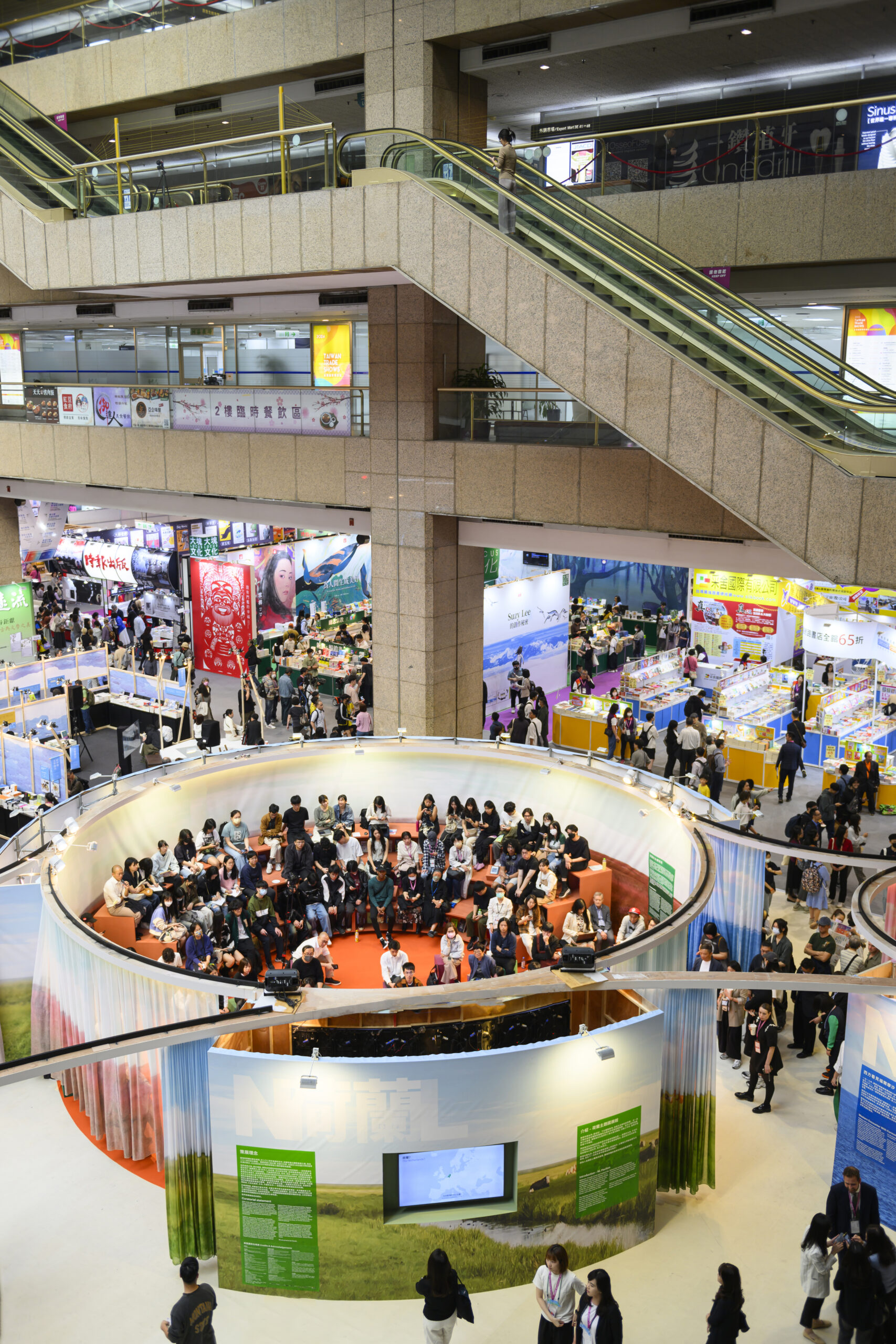
The pavilion offers a central space at the exhibition to present a diverse group of acclaimed Dutch contemporary and children’s writers and illustrators, including Thé Tjong-Khing, Ilja Leonard Pfeijffer, Maxim Februari, Radna Fabias, Alfred Birney, Carolijn Visser, Thomas Olde Heuvelt, Joyce Bergvelt, Bibi Dumon Tak, Charlotte Dematons, Hanna Bervoets, and Robert van Gulik (represented by his son Thomas van Gulik).
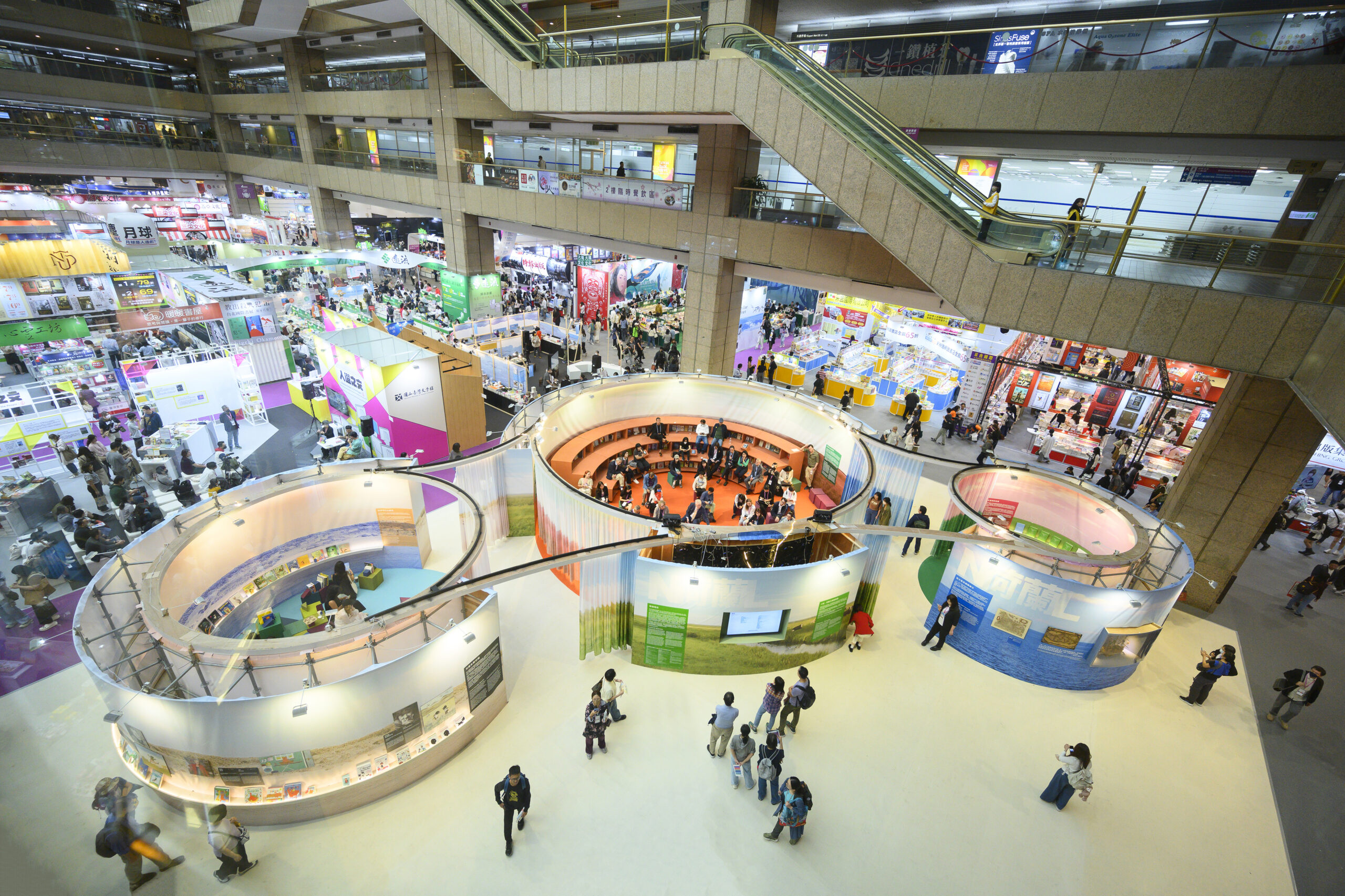
These authors and illustrators, alongside many other participants, presented a wide variety of discussions, lectures, workshops, and cultural experiences.
